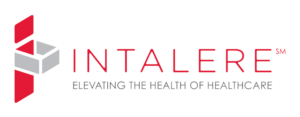Revenue Cycle Management Services
Boost Productivity and Enhance Customer Experience
From bottom-line pressures to labor shortages to complex reimbursement procedures, confronting the challenges that revenue cycle management (RCM) organizations face requires a strategic approach.
At Auxis, our comprehensive RCM services allow healthcare entities to focus on patient care rather than revenue concerns. With service delivery from Latin America’s top nearshore hubs, we bring best practices, top-tier talent, and cutting-edge automation and analytics to deliver high-quality, end-to-end RCM solutions.
What we’ll cover in the consultation:
- RCM processes you are interested in outsourcing and how can Auxis support you
- Results and benefits to expect from RCM outsourcing
- Different outsourcing location models (onshore, nearshore, offshore), and advantages of Auxis’ nearshore platform in Latin America
- Potential process improvement and automation opportunities
- Auxis’ relevant healthcare and RCM experience with other clients
- How Auxis is different from other healthcare revenue cycle management companies
- Answer any questions
"*" indicates required fields




















Our Revenue Cycle Management Solutions
By outsourcing revenue cycle management to Auxis, you gain instant access to best practices and the latest technology for revenue cycle optimization: reducing administrative burdens and errors, improving cash flow, speeding turnaround times, and driving organizational success. Our end-to-end RCM solutions include:
Insurance Verification
Confirming insurance coverage for patients, including dual eligibility, Type Program (TP) eligibility, and out-of-state verification.
Insurance Prior Authorization
Determining and submitting insurance authorizations and following up through completion.
Benefits Determination
Identifying in- and out-of-network benefits and patient liabilities.
Coding
Turning a visit summary into an insurance or billing document by ensuring health information and services are coded properly, efficiently, and in full compliance.
Claims Processing
Properly formatting and submitting claims to insurance providers. Includes complex claims for non-traditional payers like workers’ compensation and motor vehicle accidents.
Claims Follow-ups
Checking claims status as well as reasons for non-response, delayed payments, and improper claim denials.
Claims Denial Resolution
Reviewing claim denials to identify and correct errors and manage the appeals process.
Accounting Transactions
Payment processing, payment application, account reconciliation, and resolution of credits and refunds.
Billing & Collections
Following provider policies and procedures for charging patient accounts and collecting payments.
Insurance Verification
Insurance Verification
Confirming insurance coverage for patients, including dual eligibility, Type Program (TP) eligibility, and out-of-state verification.
Insurance Prior Authorization
Insurance Prior Authorization
Determining and submitting insurance authorizations and following up through completion.
Benefits Determination
Benefits Determination
Identifying in- and out-of-network benefits and patient liabilities.
Coding
Coding
Turning a visit summary into an insurance or billing document by ensuring health information and services are coded properly, efficiently, and in full compliance.
Claims Processing
Claims Processing
Properly formatting and submitting claims to insurance providers. Includes complex claims for non-traditional payers like workers’ compensation and motor vehicle accidents.
Claims Follow-ups
Claims Follow-ups
Checking claims status as well as reasons for non-response, delayed payments, and improper claim denials.
Claims Denial Resolution
Claims Denial Resolution
Reviewing claim denials to identify and correct errors and manage the appeals process.
Accounting Transactions
Accounting Transactions
Payment processing, payment application, account reconciliation, and resolution of credits and refunds.
Billing & Collections
Billing & Collections
Following provider policies and procedures for charging patient accounts and collecting payments.

Nearshore Pioneer
in Latin America
With over 25 years of shared services experience in the region, Auxis’ IT Help Desk Outsourcing Services are provided from Latin America’s top nearshore locations. Our customers receive critical advantages like time zone compatibility, strong cultural affinity, and highly educated talent with exceptional English proficiency and familiarity of North American operations.


Costa Rica
Most mature shared services destination in the Americas, with over 350 multinationals providing business services from the country.


Colombia
Ranked #1 in Latin America for availability of skilled talent (IMD World Talent Ranking) and #1 for financial attractiveness in LATAM (Kearney Global Services Location Index).




Supporting Hubs
Our support hubs offer the best quality, technically skilled talent from top nearshoring destinations including Mexico, Argentina, and Guatemala, and use best practices, technology, and innovation to drive continuous process improvement.
RCM Outsourcing for Top U.S. Healthcare Provider
Ready to Take Your Revenue Cycle Management to the Next Level?
